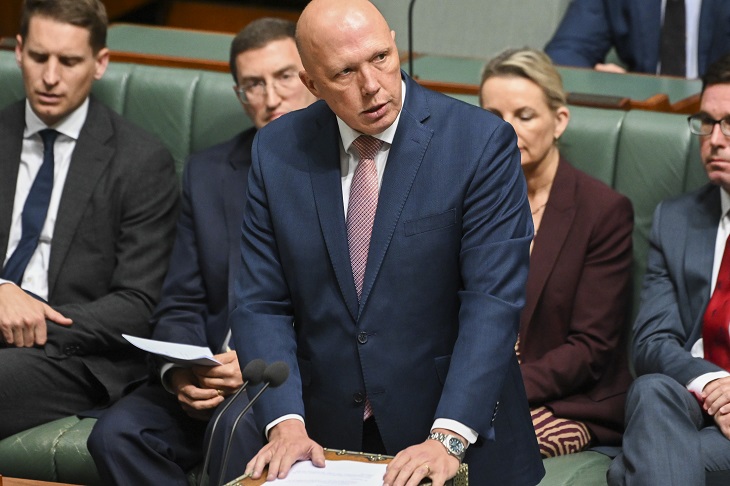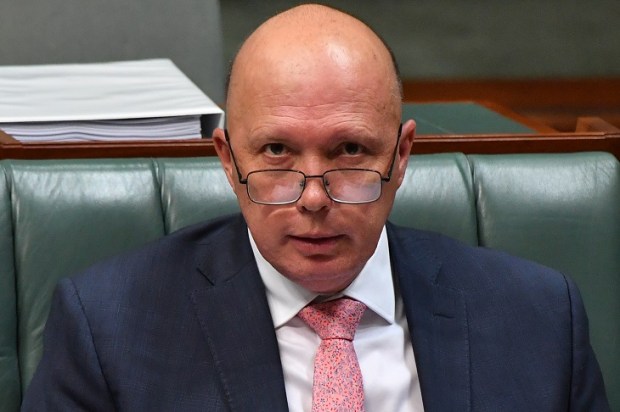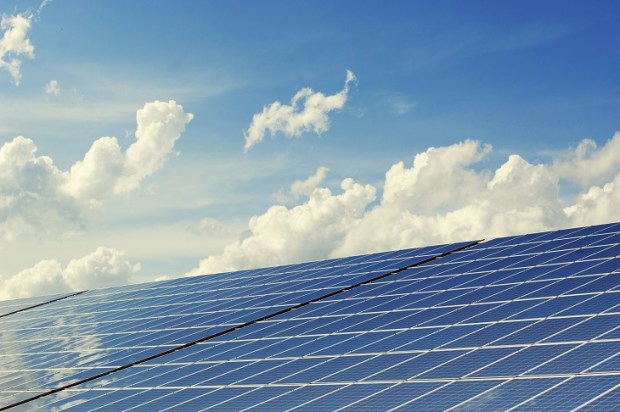The Liberal Party is at a low ebb, out of office across mainland Australia. Its vacillating, timid lack of self-confidence is disappointing its core supporters. Paul Kelly, writing in The Weekend Australian (14/4/2023), quotes former Prime Minister John Howard and former campaign director Andrew Robb calling for a policy overhaul. Kelly reports that Liberal leader Peter Dutton pledges a bold policy agenda, and that a review is already underway.
The Dutton Liberal Party’s decision to oppose the megaphone Voice drafted by Prime Minister Albanese and his Indigenous advisory group is a defining moment for his leadership and the party. He should not allow space for others to define his opposition in negative terms, for example, as divisive, racist, or ‘on the wrong side of history’. Instead, Dutton must quickly come out on the front foot to define his leadership, his opposition to the Voice, and the future of the Liberal Party.
Firstly, he has made the right decision in appointing Jacinta Nampijinpa Price as Shadow Minister for Indigenous Affairs. She is already the Coalition’s most authentic, credible, capable, principled, and high-profile spokesperson in this area. But she cannot be left to carry the case and wear the vitriolic criticism on her own. She must be confident of, and get, the full support of Dutton and Littleproud and, to the maximum extent possible, the Coalition parties and their supporters.
Secondly, Dutton should step up from critiquing the Voice as impractical, bureaucratic, and Canberra-centric to a principled opposition. Now that the naïve Julian Lesser has resigned from the Shadow Ministry, Dutton has started this repositioning, telling The Australian’s Janet Albrechtsen: ‘What the Prime Minister’s proposing is the only institution enshrined in the Constitution where membership will be based upon race.’ He comments that this is ‘without precedent’ and that after hundreds of discussions and months of consideration he has concluded that ‘this clearly is not in our country’s best interest’. It’s a good start, but he needs to go further.
The central tenet of the ‘Recognition’ that Pearson and other Indigenous leaders insist on is that they are a unique, special people deserving of Constitutional special rights, what Pearson calls a ‘rightful place’, that is different from, and some may understand this to mean superior to, other Australians. Enshrining a special status for themselves in the Constitution is the whole point of ‘Recognition’. If Liberals concede that, they are in the quagmire of how they are going to achieve it, what their model is, if not Albanese’s megaphone Voice in the Constitution. Recognition in the preamble will cut no ice with them – they’ve already rejected it. It is hard to see that any alternative Voice wording (such as Leeser’s or Brennan’s) would satisfy, given where the Indigenous advisory committee has got to with its megaphone Voice on everything to everyone. In their 2017 response to the Uluru Statement from the Heart, then Prime Minister Malcolm Turnbull, his Attorney General George Brandis, and Indigenous Affairs Minister Nigel Scullion, were spot on:
‘Our democracy is built on the foundation of all Australian citizens having equal civic rights … a constitutionally enshrined additional representative assembly for which only Indigenous Australians could vote for or serve in is inconsistent with this fundamental principle.’
The core of the ‘No’ case is a single, undifferentiated Australian citizenship, born or sworn, in which Australian is Australian regardless of ancestry; and not having a race-based institution enshrined in the Constitution. That equality of civic Constitutional rights is fundamental to our success as a multicultural society. If we depart from it, and the Constitutional Voice would be a significant departure, it will be not only wrong in principle, but divisive and likely, over time, to fuel considerable disharmony or worse. It will not be reconciliation, quite the reverse.
The alternative to this recognition of specialness is that Indigenous Australians reconcile to being Australians who, like other Australians, have diverse cultural and language heritages. Australia has a unique role to be sure, including Indigenous land rights, because of their geographic origin on this continent. But that should not, must not, change the civic rights and responsibilities of Australians in a modern, multicultural, democracy. Jacinta Nampijinpa Price, most prominently, is constantly claiming for her people, particularly women, and children, their rights as Australian citizens to the ordinary protections of the law, in particular the laws against domestic violence and child sexual abuse. In her view, Indigenous-specialness thinking can be against her people’s interest. It can allow dysfunctional and indeed criminal practises to go unchecked undercover of ‘culture’. It also underpins the ‘soft bigotry of low expectations’ that normalises poor Indigenous educational outcomes. So, take a lead from Indigenous ‘No’ campaigner Warren Mundine, who says, ‘Indigenous people are in the Constitution like every other Australian.’ Tackle disadvantage on the grounds of disadvantage, not indigeneity.
The ‘No’ campaign is an opportunity to prosecute the case for core principles of our Constitution, which created a modern, democratic nation based on universalist principles of citizenship, representative democracy, the rule of law, and more.
Thirdly, that provides a platform from which to re-articulate the philosophy of individualism, personal responsibility, enterprise, and aspiration. As contrasted with collectivism, victimhood, dependency, and apathy. In recent years, Labor, though still somewhat inclined to class-warfare rhetoric and policies, has become more and more enmeshed in identity politics, with its collectivist representational agenda of diversity, equity, and inclusion. Aboriginal leader Marcia Langton rejects claims the Voice is racist by saying race is genetically non-existent and ‘the accurate way to describe Indigenous people is by their language … or clan status’. The Liberals must respond at the level of political philosophy, not just practicalities, and stand up to defend individualism against the modern tribalism of identity politics and the ancient tribalism of Indigenous clans. We are individual citizens, Australians, not gender identities, ethnicities, clans, and language groups. The Liberals should confidently promote the ‘I am, you are, we are Australian’ spirit that inspires our modern, multicultural democratic nation.
On a re-articulated political philosophy of Constitutional civic equality, individualism, enterprise, and aspiration the Liberals can fashion policy outlines for various other areas, including: family, housing, and immigration; tax, the economy, and energy; social services, education, and health; defence and foreign policy. At least some of these policy agendas need to be bold, to stretch, shape and redefine the debate.
On tax, have the debate on increasing the rate and broadening the base of the Goods and Services Tax, and its distribution between the Commonwealth and the States and Territories, to offer income tax cuts and increases to pensions and welfare. Dutton has got to get people’s attention and offer real alternatives.
On climate and energy, Dutton has said he’s ‘not afraid of having a discussion on nuclear’. Albanese’s Climate and Energy Minister Chris Bowen says bring it on. But so far, with nuclear out of the frame, it’s just renewables versus fossil fuels, climate action versus climate denial. The Coalition has nothing but a weak line that it could better manage the transition to renewables. Dutton’s Shadow Minister Ted O’Brien has done his fact-finding international tour, so let him bring on the debate. Apply a blowtorch to the flimsy claims that renewables alone can secure an abundant, reliable, affordable, and low-emissions energy system. Have the debate about the sprawling renewables, transmission, and storage infrastructures and their costs; have the debate about possible nuclear technologies and siting options. Contrast the austere, miserabilist, demand-managed, and highly regulated future of the renewables-only zealots with a future of opportunity and prosperity underpinned by enterprise and nuclear power, the 20th Century’s Promethean gift. I’ll say more about energy in future articles.
Finally, the Liberals need to understand that defeating the Voice proposal is not a matter of the tactical politics they have engaged in to date, perhaps to avoid blame and opprobrium. It is an existential necessity, a go-to-the-barricades all-out fight for survival. If sneaky, sneaky Albanese’s megaphone Voice goes into the Constitution, we will be in a different nation, with different governance. Labor will quietly work through the implementation details and following an election win in 2024 or 2025, pass the enabling legislation through a Labor-Greens dominated Parliament. The Voice will set about its work, including making representations on the terms of a treaty, and then its implementation and enforcement in perpetuity. But whatever else the Voice does, it will be there to forever frustrate any and every initiative any future Coalition government might wish to undertake. What’s more, Australian liberal individualism will be dead. Australia will descend, slowly at first, then quickly, into identity politics tribalism, riven by all its attendant strife and dysfunction, or worse.
Dr Michael Green has a PhD in Systems Engineering.
Got something to add? Join the discussion and comment below.
Get 10 issues for just $10
Subscribe to The Spectator Australia today for the next 10 magazine issues, plus full online access, for just $10.

























Comments
Don't miss out
Join the conversation with other Spectator Australia readers. Subscribe to leave a comment.
SUBSCRIBEAlready a subscriber? Log in